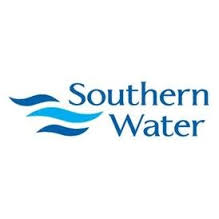Southern Water plans to axe about 150 jobs, cut customers’ bills and close an offshore offshoot as new chief executive Ian McAulay looks to modernise the business.

Mr McAulay, 53, who took the top job last year, has been behind moves to boost customer satisfaction, in part by trying to improve Southern Water’s online presence.
As a result, the company is reorganising staff, with some management and support jobs no longer needed, and hoping to achieve cost savings in the process.
The Cayman Islands offshoot, set up to raise money from investors rather than to reduce the company’s tax bill, was closing for two key reasons.
First, it was no longer needed and, second, because offshore tax havens carry reputational risk, particularly in the age of social media.
Mr McAulay told Brighton and Hove News this afternoon (Thursday 10 May): “We’re continuing to try to improve our performance.
“We’ve made some pretty big strides in the past year but we’re a company that’s compared (with others) using a ‘relative efficiency model’ and it’s clear that we’re not the most efficient.”
The pressure to bring down costs meant reducing the headcount and making “operational efficiencies” through digital technology.
“It’s as much about doing things differently, using technology,” he said, “and inevitably that means fewer people.”
All frontline staff will stay, with those in redundant posts redeployed where possible. And the company would seek voluntary redundancies as far as it could rather than force people out.
Mr McAulay said: “I never forget how it feels when you’re on the receiving end of it, having been made redundant myself.
“We’re still taking people on – and when we can reskill, we will. We’ve also got our apprenticeship programme.
“Customers can expect bills to come down in ‘real terms’,” Mr McAulay said. Low interest rates meant cheaper debt, although inflation had been more volatile recently.
“We’re trying to provide the best possible service for our customers at the lowest possible price,” he said.

He was acutely aware of the public service aspect of Southern Water’s business, adding: “We need to articulate that more.”
It wasn’t just the core job of supplying clean drinking water and removing and treating waste water, he said.
There was also the economic, environmental and amenity value of clean rivers and sea water – and the value to the local economy as people flocked to the beach in Brighton, for example.
Mr McAulay also highlighted the company’s plastics policy, working with Brighton and Hove City Council and dozens of shops and other businesses to encourage the use of refillable water containers.
As a Brighton resident, he was pleased that it was catching on so well locally – “as these things do in Brighton!”
But the rubbish left behind on bank holiday Monday showed the scale of the task. He said: “There was a huge amount of plastic taken off the beach – but less than previously.”
Mr McAulay, who has almost 500 staff at Falmer and can be spotted at the neighbouring Amex Stadium on match days, added: “We care deeply about continually improving our business, increasing financial transparency and providing great services for our customers.
“To achieve this we are constantly reviewing our processes and making changes to the way we work.
“Change is not easy but this will help us improve our services for customers by transforming key aspects of the work we deliver, enabling us to build a resilient water future for the south east while also reducing customer bills.
“Our customers and regulators quite rightly expect us to always provide the best possible service and value.
“That’s why at Southern Water we’re continually reviewing and changing our systems and processes to make sure they are fit for purpose now and for the future.”
The latest announcement marked a continuation of work that the company had already started, he said, with Southern “making our financial structure and our 100 per cent UK tax status more transparent and easier to understand”.
The Cayman Islands finance subsidiary would be wound up by the end of the year, even though the move would cost shareholders money.
“We looked at this as a board and we’re conscious of public perceptions.
“It’s about being on the right side of public perception – and it’s about doing the right thing.”
He would, he said, continue “to take a deeper look at how our customers perceive us, how much trust they have in us – and use this insight to shape our future structure”.
The dividends paid to shareholders, for example, would “reflect the quality of public service we deliver” as part of this strategy.
The company has about 2,400 staff overall, with more than a third at its head office in Durrington and almost 500 at its next biggest site, in Falmer.
With staff being consulted on the 150 potential redundancies, the aim was to complete the restructuring within three to four months.











So, less than a year after the last round of restructuring and redundancies, Southern Water plans to further demotivate staff at the frontline of customer contact. Perhaps they should be looking further up the staffing structure to make savings.
I agree
I second that!
The Water Industry is suffering a lack of skills within their respective companies and rely heavily on contractors. The skills needed are pushing the companies backward and to employ frontline staff is increasingly difficult as contractors do pay better. Few years ago a Hayes evaluation highlighted that many staff with key skills are paid less than the average which has demoted the workforce. Southern Water is experiencing a reluctance from its staff to do the extra bit as they do not offer incentives. Yet will pay the contractor, there seems to be an imbalance between loyalties, Contractor or Employee. With the increasing lack of skills costs will rise in the frontline as the employees do not have the experience to determine best and affordable outcomes, the customer will eventually pay for this shortfall. Water Companies did have a workforce which had broad experience yet profit and severe lack of investment over years is making the water networks suffer with lack of maintenance creating costly methods to be increasingly used. Water Companies in general were considered to be the experts in their field from Within their respective companies. This is not the case anymore and within companies there seems to be this lack of importance to develop its staff into those fields where they should be telling the contractor what to do there is now a reversal and the contractor dictates the cost. The customer will eventually pay the difference.